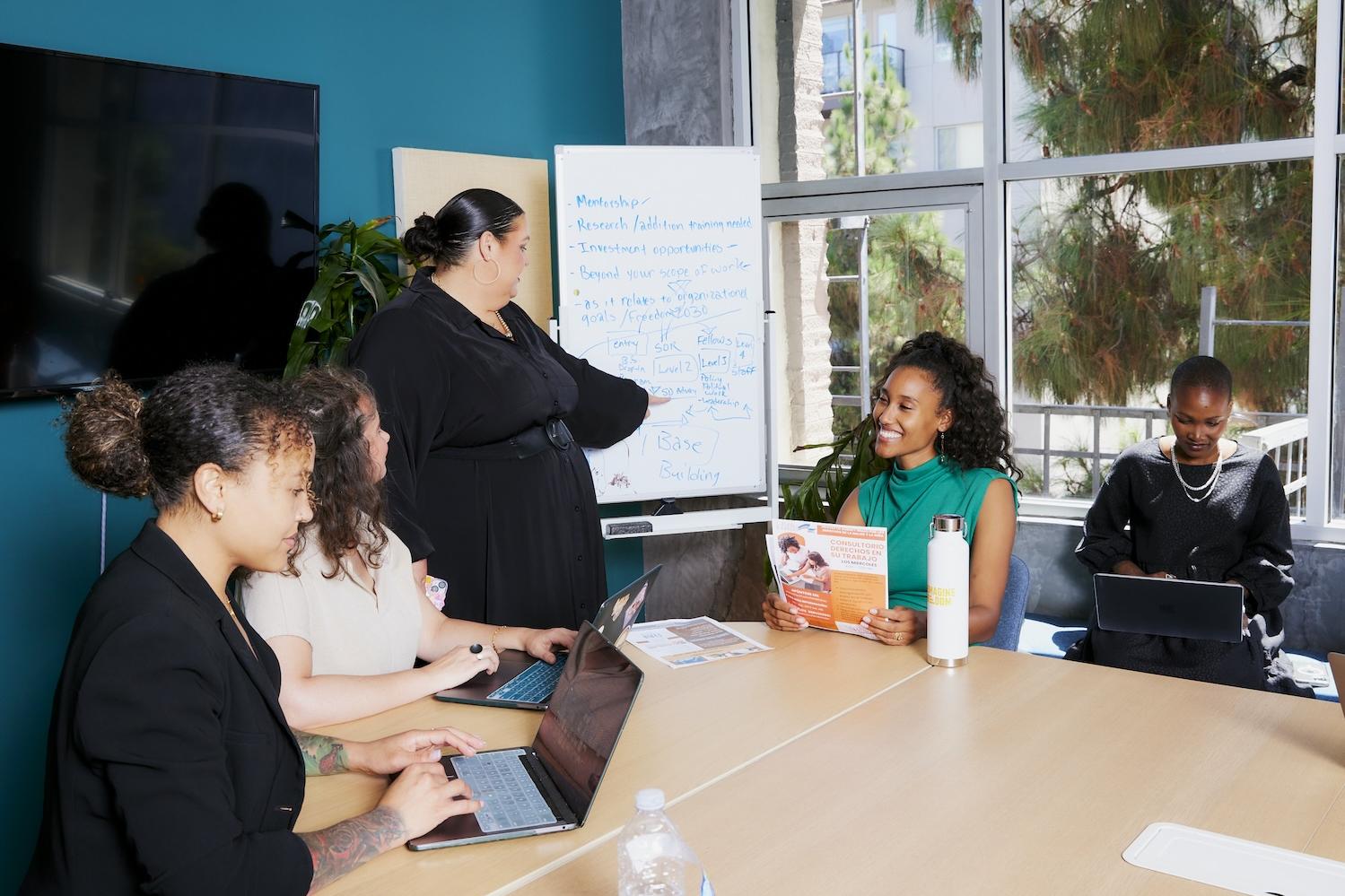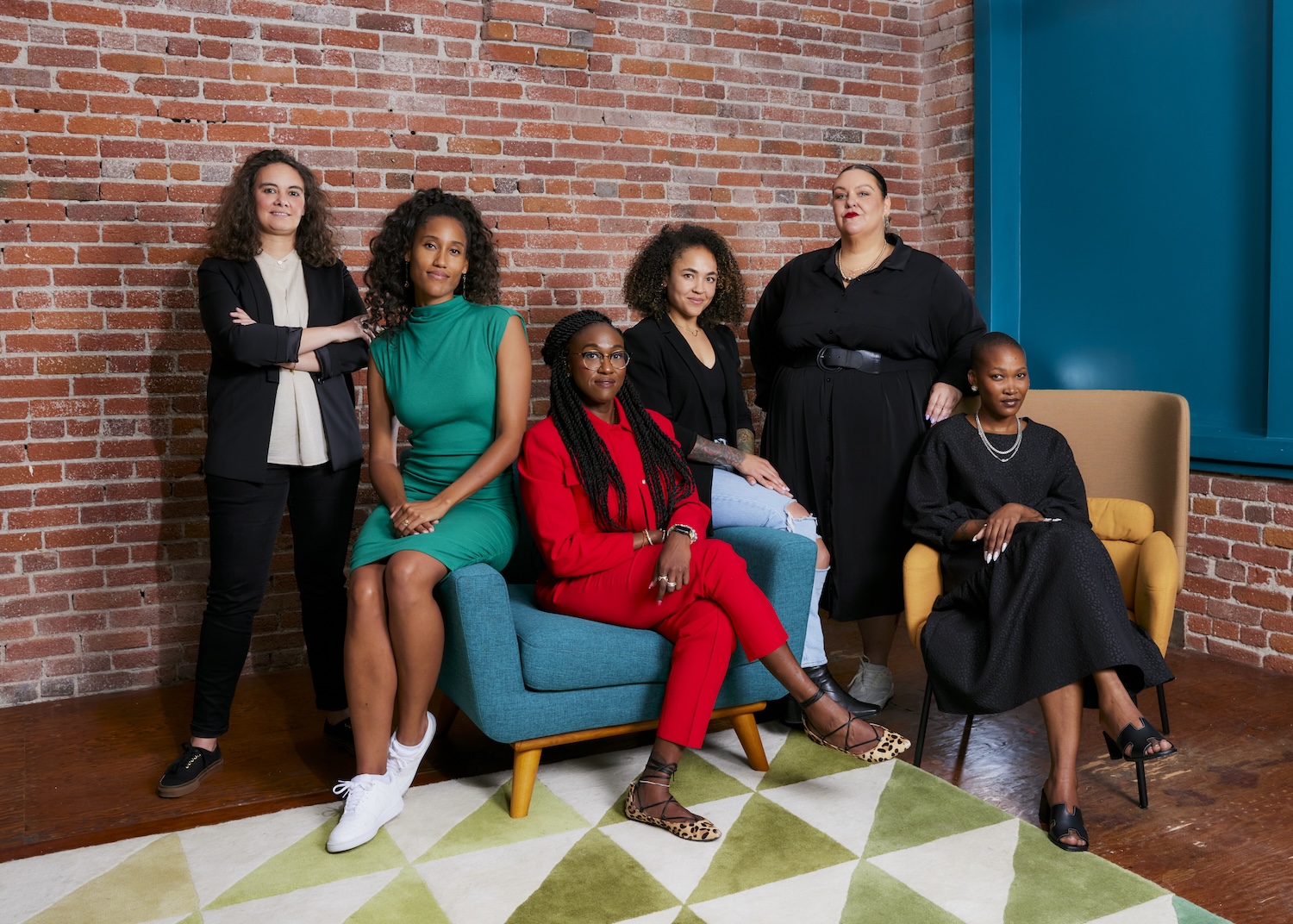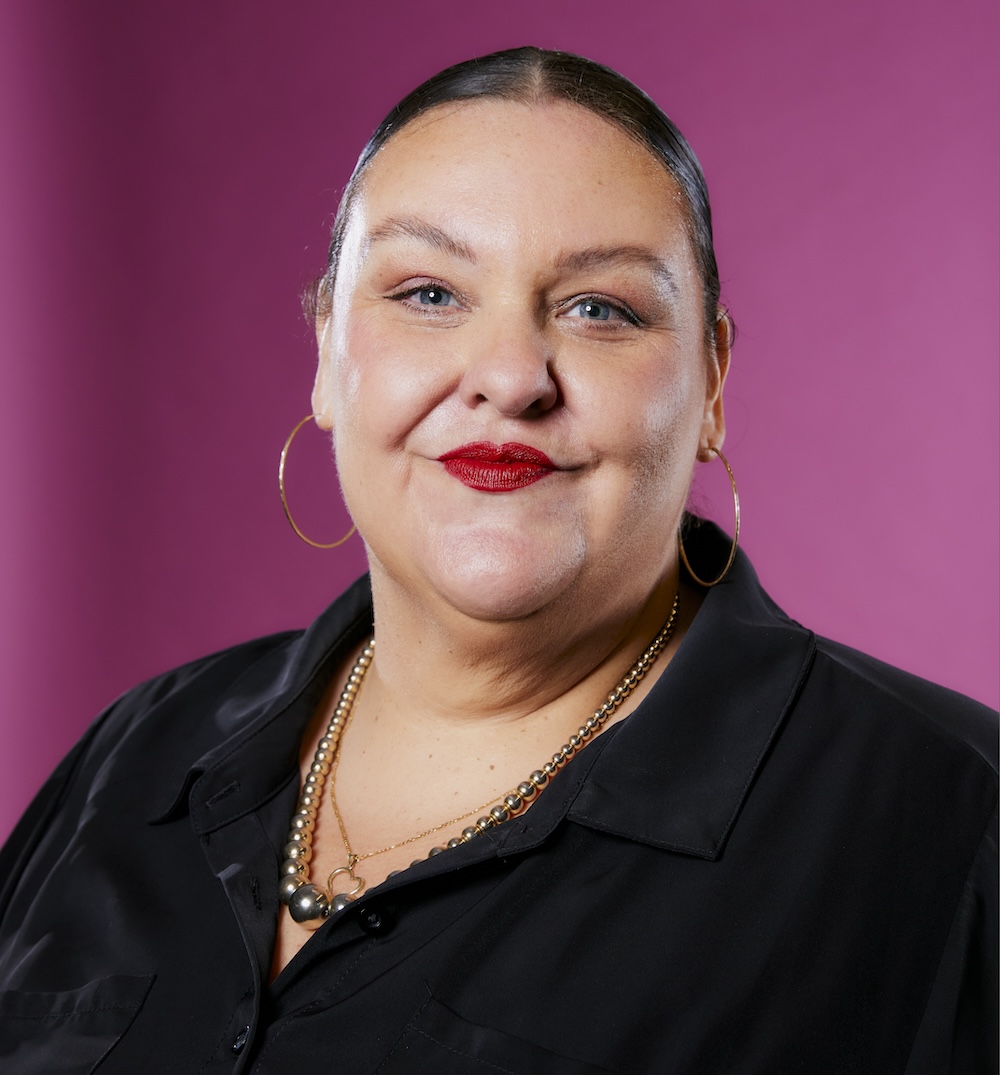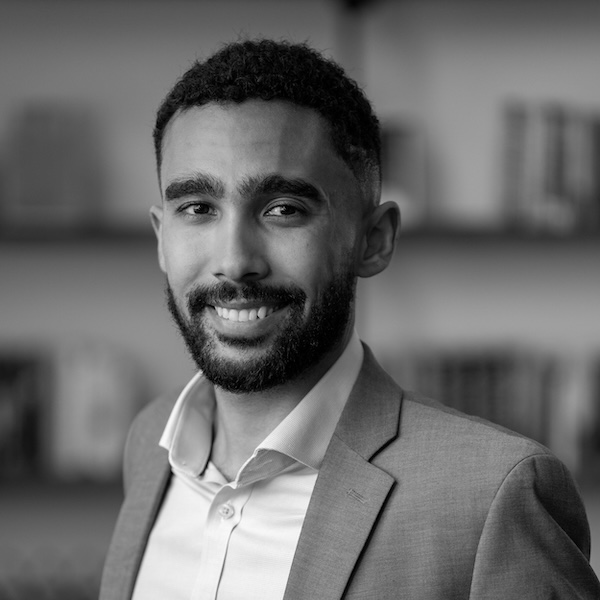
Reimagine Freedom has employed girls, women, and gender-expansive people facing poverty and homelessness since 1993. Led by former program participant Jessica Nowlan, the organization also supports social enterprises developing economic justice solutions through its impact investing and business incubation arms. (Image: Reimagine Freedom)
The story of poverty in California, and the United States as a whole, cannot be told without discussing the housing and homelessness crisis. The principal cause of California's status as the state with the highest poverty rate is that our sky-high housing costs have yielded catastrophic consequences for our residents, so much so that 4 in 10 low-income Californians are either experiencing homelessness or pay over half of their income for rent. And yet, despite ample abundance of resources and solutions capable of alleviating this crisis, our culture too often shifts blame away from the policy choices that have made these outcomes inevitable for many and instead blames the very people suffering for the position in which they find themselves.
I spoke with Jessica Nowlan, the president of the impact investor and business incubator Reimagine Freedom, about her experiences with housing insecurity and the work she's leading to build economic power for women and gender-expansive people, our families, and communities.
TriplePundit: You’ve been a leader in the fight against poverty for years, and much of that work has been shaped by your own experiences with housing insecurity. Can you share a bit about your personal journey?
Jessica Nowlan: I was homeless with my kids as a young mom because I didn't have a salary that allowed me to get stable housing for us. We ended up in homeless shelters, where I was trying to get into programs like Section 8. I was signed up in 7 different counties, and finally, 5 years into the waiting list, I learned that if I could provide [evidence of] domestic violence, my applications would get expedited. Once I brought forward my DV history, I finally received Section 8, which was transformative because for the first time, I could provide real stability for my children.
Then I started working at the Young Women’s Freedom Center, where both myself and everyone we worked with had experienced homelessness and housing insecurity since the early '90s.
I’ll never forget going to these events where well-meaning liberal funders were saying, “Have you heard of Section 8? You should just sign up.” As if it were that simple. That always stuck with me. People just don’t understand how limited these programs are or how hard it is to access them unless they’ve been through the process themselves, and there are a lot of myths still being perpetuated around houselessness. It definitely shaped the way I approached this work.

3p: Speaking of myths, there are many myths around the housing crisis in particular, why housing is so expensive and why people are on the street. What do people get wrong about the housing crisis?
JN: One of the biggest myths is that we don’t have enough housing. But I live in a high-rise in downtown Los Angeles, which has been my childhood dream, and the building is half-empty most of the time. So are the surrounding buildings. We do have housing stock, but its management and distribution is driven by profit, not people’s needs.
A lot of so-called "affordable housing" is built through public-private partnerships that don’t actually work for low-income people. Years ago, I was placed in site-based Section 8 housing in a brand-new development in San Francisco. I was coming out of a shelter with my kids and thought, “I made it.” But the building was managed by a for-profit company, and they only did income reassessments once a year. When I got laid off, I told them I couldn’t pay. They said, “We’ll reassess in 12 months.” I ended up evicted and taken to court — over a few hundred dollars I couldn’t come up with. That’s not housing justice. That’s a trap.
The other myth is that homelessness is mostly about addiction or individual failure. Sure, addiction exists, and it can happen to anyone, but the root cause of homelessness is that working people cannot afford to live. Wages haven’t kept up with the cost of living, and even with policies like a $15/hour minimum wage, people still can’t make ends meet.
And we’re dismantling the few programs that do work. One example is Job Corps — it provided housing, training and structure for young people with nowhere else to go. Many of them didn’t have families or access to college. We just cut that. And then we wonder how youth homelessness happens? We’re creating it. We’re telling a generation: You don’t get housing. You don’t get training. You don’t get a shot.
That’s what people get wrong. This isn’t about bad choices or scarcity. It’s about bad policy, and the choice to put profit over people.
3p: Do you think current conversations about the housing crisis fully capture the unique challenges faced by women, girls and gender-expansive people? What do we miss when we fail to explicitly examine how housing insecurity impacts people differently based on gender?
JN: Well, I have a lot to say about this. I don’t think we talk about gender nearly enough when it comes to the housing crisis — and when we do, we rarely capture the full picture. Gender intersects with race, foster care, incarceration, and so much more.
At the Young Women’s Freedom Center, we often meet young people who are already homeless. LGBTQ+, trans, and nonbinary youth are frequently kicked out of their homes. Many of the young women we work with have been torn from their families and placed in dangerous foster care settings — they run, and end up on the streets. And when you're a girl or trans youth trying to survive night to night, you often get pushed into the underground economy — sex work, drug sales — not by choice, but by necessity. That was my own experience. And it leads straight into the criminal justice system. It’s a vicious cycle.
Women are often heads of households, too. Yet we see mothers demonized for being unhoused with their children. But the truth is, it’s not their failure — it’s a systemic one. Kids are safest with their parents, and we need to prioritize housing that keeps families together.
I spent years on the streets of the Tenderloin in San Francisco at age 13, and I’ll tell you: It’s not safe. Rates of sexual violence for unhoused women are horrific. And when women come home from incarceration, many of whom are parents, they’re given $250 at the gate. That amount hasn’t changed since the ’70s. It’s not even enough for a night in a hotel now.
And let’s be honest: Placing youth in SROs [single-room occupancies, often in converted hotels] in the Tenderloin is not a housing solution. It’s not safe, it’s not dignified, and it doesn’t offer the stability or freedom they need. That’s why we wrote the Freedom Charter — to demand housing that allows us to live with safety, dignity and self-determination. Housing that isn’t run by law enforcement. Housing where we can raise our children and be our full selves.
So no, the conversation doesn’t reflect our realities. And it urgently needs to.

3p: What are you currently up to at Reimagine Freedom?
A: After we wrote the Freedom Charter, it became clear that while we have amazing organizations doing the work, we also need to be thinking about infrastructure. That’s what led to the launch of Reimagine Freedom, which I’m leading now. It’s rooted in a simple belief: If we want a different kind of society — one that addresses all the issues we’ve been talking about — we need different kinds of leaders.
We believe that women, girls, and gender-expansive people who have lived through the harshest conditions in our society are the ones who hold the solutions. But our current systems actively suppress their brilliance and block their visions from becoming reality.
At the Young Women’s Freedom Center, we’ve spent over 33 years investing in more than 40,000 of these leaders. Reimagine Freedom is about scaling that impact. We’re advancing leadership through business incubation, shifting culture through storytelling, and building new economic systems through impact investing, designed by the very people who’ve been pushed to the margins.
I deeply believe that when these leaders are given time, space, and resources, they become an unstoppable force for transformation. Our goal is to build community-rooted economic systems that move people out of poverty for good.
3p: We are at a moment where people are feeling quite down. What gives you hope?
A. I've been frustrated for years with how our conversations and strategies are always in reactionary mode. We can’t afford to just respond. We need long-term, visionary thinking and 100-year plans. That means looking at history, like how school desegregation was systematically unraveled, and understanding how investing in leaders with harmful ideologies has set us back.
What gives me energy is imagining the future and seeing young people begin to recognize their own power and potential. That’s where hope lives. We're building something lasting and impactful over years, not just election cycles.

Devon Gray is the president of End Poverty in California (EPIC), an advocacy organization focused on eradicating poverty in the state with the highest homeless population in the country. At EPIC, Devon aligns the organization’s priorities, both advancing a statewide policy agenda focused on equal opportunity for all and changing narratives around poverty away from ones based in outdated stereotypes to ones that better reflect the lived experiences of individuals and communities.
Devon previously served in the administration of Governor Gavin Newsom as Special Advisor to the Governor’s Chief of Staff, and was also a policy advisor for Beto O'Rourke's presidential campaign, where he led the campaign's gun safety and criminal justice reform strategies. Prior to joining EPIC, he was a director with Evergreen Strategy Group, where he advised gun violence prevention organizations on policy and communications. Devon grew up in Orange County, the son of a nurse and an LA county worker. He is a first-generation college student and a graduate of Stanford Law School, as well as the Stanford Graduate School of Education. His writings have been featured in CalMatters, Newsweek, The Hill, The Nation and other publications.














